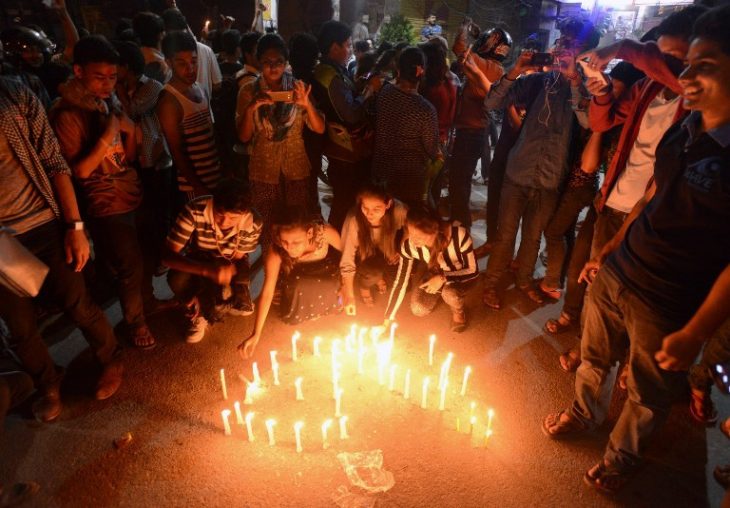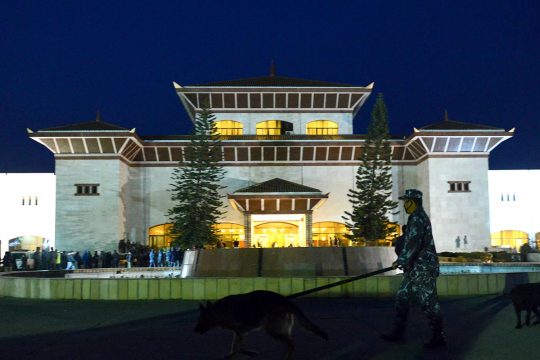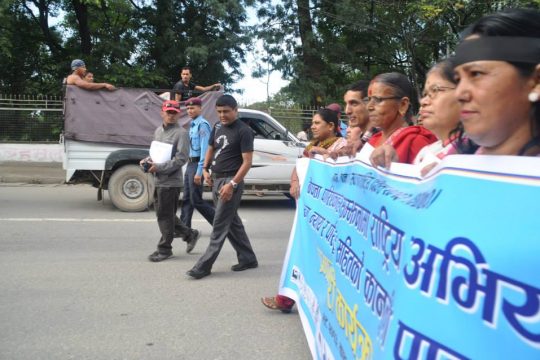In Nepal, the Conflict Victim Common Platform (CVCP) has submitted an advocacy paper on “reparative needs, rights and demands” to the Justice Minister and the country's two transitional justice bodies, in the hope of creating momentum for a national policy of reparation. Victims are urging the government to address their needs through urgent support in terms of livelihoods, health, education, employment, remembrance and recognition, based on prior consultations with victims of the civil war.
CVCP has demanded that the government declare a “national remembrance day” in memory of the conflict victims and to honour them. In the collective advocacy paper, victims have strongly demanded that the truth be acknowledged and an official apology offered by the State that would give the families “a satisfaction, and respect for their members who sacrificed for social change and republican Nepal”, says Gita Rasaili, a frontline activist of the victims’ platform.
Law Minister Sher Bahadur Tamang said in a response to the advocacy paper that “the ministry is taking the victims’ agenda seriously” and is committed to “draft a new policy of reparation to satisfy victims of the conflict”. However, victims and their activists have little faith in government commitments, since several commitments and agreements have not been implemented in the past. “We feel extremely excluded from the policy draft,” says recently-elected CVCP chairperson Bhagiram Chaudhary. “The political bargains occur in the capital and never include victims’ expectations to address our needs and solve the challenges we face every day.”
“No political will”
“There is not only a trust deficit with government bodies, but there is no political will to acknowledge the past honestly,” he adds. “We want an immediate solution and honest commitment from the authorities.”
Twelve years after the Comprehensive Peace Agreement (CPA, 2006), the government of Nepal has failed to form a policy of reparation and there is no movement to repair the past and systematically address victims’ needs. Instead we are moving through a superficial approach and the State does not listen to the needs of victims. Victims themselves have organized local meetings and participatory consultations throughout the country to articulate their needs and develop a national reparations demand.
Most acts of violence in conflict are linked to histories of marginality and exclusion. In the Nepal context, the socially, politically and economically excluded were mobilized by Maoist rebels and so became targets for the State – because of who they are, not what they had done. The Government could frame collective reparations for marginalized communities and excluded indigenous groups -- such as Madhesh, Tharu, Rapti and Karnali – in “victim regions”, who suffered most heavily in the armed conflict (1996-2006).
Victims’ needs must be put at the centre of reparations policy framing. Reparative needs must be driven by the affected communities and not just the closed spaces of institutions in the capital like the centralized TJ bodies.





